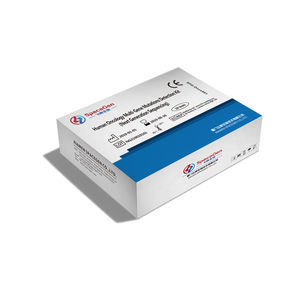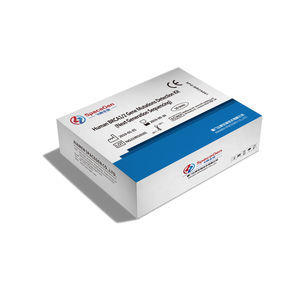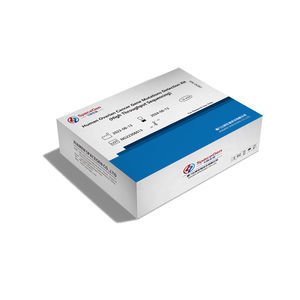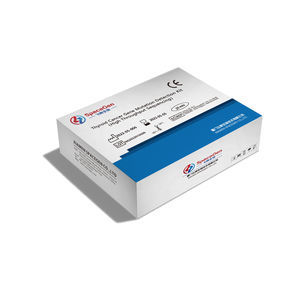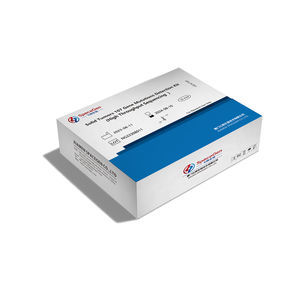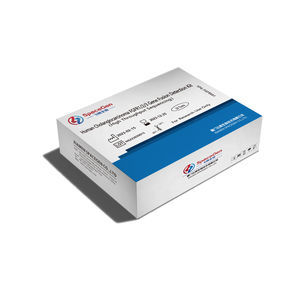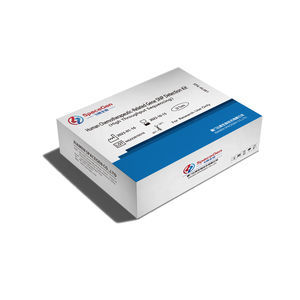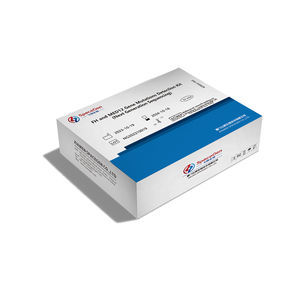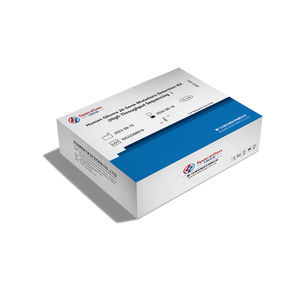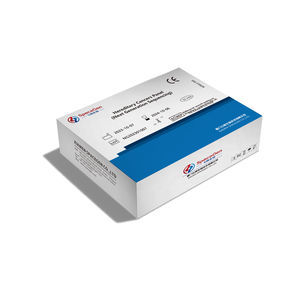

- Company
- Products
- Catalogs
- News & Trends
- Exhibitions
Thyroid cancer detection kit Thyrcan TMoncologyGNASfor BRAF mutations
Add to favorites
Compare this product
Characteristics
- Applications
- for thyroid cancer
- Application field
- oncology
- Tested parameter
- GNAS, for BRAF mutations, for KRAS mutations, for NRAS mutations, for PIK3CA Gene, for PTEN gene, for TP53 gene, HRAS, for AKT1 gene mutations
- Sample type
- tissue
- Result display time
4 h
Description
The last three decades have witnessed steady, worldwide increases in the incidence of TC . Rates vary widely from country to country, with the highest figures (per 100 000 person-years) reported in Lithuania (15.5), Italy (13.5), Austria (12.4), Croatia (11.4) and Luxembourg (11.1). Estimated TC-related mortality rates, by contrast, are low (0.7 and 0.5 cases per 100 000 person-years for women and men, respectively) with considerably less regional and temporal variation[2].Thyroid carcinoma occurs two to three times more often in women than in men. Thyroid carcinoma is currently the seventh most common malignancy diagnosed in women.
FNA SAMPLE ASSISTED DIAGNOSIS
Definite diagnosis is the premise of tumor treatment. Ultrasound and ultrasound-guided US-FNA are the first choice for the screening of benign and malignant thyroid nodules. However, FNA cytology can also produce about 20%-30% uncertain results[1]. The 2023 BETHESDA SYSTEM FOR REPORTING THYROID CYTOPATHOLOGY(TBSRTC) recommend gene testing for Bethesda type III 、 IV or V nodules with uncertain US-FNA cytological diagnosis, which can assist in the diagnosis of benign and malignant nodules , the classification of thyroid cancer subtypes, and guide the follow-up treatment
OTHER DIAGNOSIS AND TREATMENT TIPS
In addition, thyroid cancer gene detection can provide prompt information for the formulation of surgical plan, the use of targeted drugs, the diagnosis and treatment of hereditary thyroid cancer. Both FDA and NMPA have approved a variety of targeted drugs for the treatment of unresectable, recurrent and refractory differentiated thyroid cancer (DTC), medullary thyroid cancer (MTC)
Catalogs
No catalogs are available for this product.
See all of SPACEGEN‘s catalogsRelated Searches
- Assay kit
- Blood assay kit
- Immunoassay assay kit
- Plasma assay kit
- Infectious disease detection kit
- Analysis software
- Molecular test kit
- Respiratory infection test kit
- Whole blood detection kit
- Optical assay kit
- Clinical assay kit
- Fluorescence assay kit
- Viewer software
- Real-time PCR test kit
- Research assay kit
- Laboratory software
- Windows software
- Laboratory detection kit
- Cell assay kit
- Oncology test kit
*Prices are pre-tax. They exclude delivery charges and customs duties and do not include additional charges for installation or activation options. Prices are indicative only and may vary by country, with changes to the cost of raw materials and exchange rates.

